The right timeline for talking in your baby
It is best for parents to understand that from the first coo, their baby’s language skills develop in an orderly manner; some achieve milestones a bit before time, while others do so a little later.
Here are a few guidelines of what to expect from a baby and when:
Your baby before 3 months makes quiet cooing sounds when pleased; these sounds are typically a single vowel like ahh. At about 2 months your baby cries differently in different situations like hunger, when he/she is tired or sleepy. You will soon learn to distinguish between the different cries.
Between the ages of 3 to 4 months your baby will vocalize vowels and his/her cooing sounds will become more sophisticated and varied. He/she will also start babbling and making sounds like bah-bah or muh-muh. By the time he/she is 5 to 6 months, one practices intonation making one’s voice fall and rise in response to baby talk and facial expression.
Between the ages of 7 months and 12 months your baby will babble a lot making different sounds and combinations and intonation. He/she tries to imitate your speech and also has pretend conversation with you taking turns talking.
There is a need for serious concern if your child is not making sounds by the time he/she is 7 months old; consult a doctor.
Your toddler of 12 months says his first word and knows more words and uses them well. At 14 months he/she raises ones voice at the end of questions like “more” and complements one’s speech by making hand gestures.

A word of alert; consult your doctor if your child has not said a single word at 15 months.
At 16 months, your baby learns to talk to one person as opposed to just babbling, he/she calls you “Mummy” and says “Yes” or “No” with a nod or shaking of the head. Your baby also makes consonant sounds like t, d, n, w, and h. By 18 months your baby has the vocabulary of about 10 to 20 words that consist of names, verbs and adjectives. He/she also learns the use of common phrases to make requests.
It is between the ages of 18 to 24 months that a baby puts together 2 word phrases like "Daddy goes," and "milk mess."
A 24 month preschooler knows 50 to 100 words and can make 2 to 3 word sentences and use personal pronouns like "I fall down!" and "Me go school?"
Your preschooler between the ages of 2 to 3 years will ask questions frequently and converse about the immediate environment. He/she will use 3 to 6 word sentences; have a vocabulary of 200 to 300 words that consists of a lot of verbs. He/she will used past tense adding a d to the sound of the verb, create plurals by adding s to the sound of nouns and use pronouns I, she and we in the correct sense.
Consult your doctor if your 2 or 3 old echoes questions instead of answering them; it could be an early sign of language or social delay. There is however no need for anxiety if the child occasionally repeats the question.
A kid of 3 to 4 years favorite words are "why," "what," and "who and he/she can understand most of the time and narrate what happened in the room in your absence.
Be alert if your child of this age stutters and trips up on words in his/her excitement to communicate. If it continues for more than 6 months and the child tenses his jaws or grimaces while trying to get words out consult a speech pathologist or pediatrician.

A big kid of 4 to 5 years communicates more easily and can tell a story with pictures with a beginning, middle and end. He/she can make 4 to 5 sentences that describe a picture and is able to use one or more action words in a sentence. He/she uses a lot of descriptive words that are time related and pronounce most sounds except with th, r, s, l, v, ch, sh, and z correctly.
Between the ages of 6 to 7 years your child can describe how 2 items are similar or different and can recount past events and conversations without the help of pictures, He/she also knows about some irregular plural words like teeth and men.
Lastly by the age of 8 years your child has mastered all speech sounds, rate, pitch and volume of speech. He/she uses compound and complex sentences and is capable of carrying on a conversation with an adult.
Image Courtesy: Google
Take the next step toward your goals
Share your requirement and find the best care providers in your area
-
Looking for a caretaker’s job? Build your profile and get in touch with families in your vicinity.
-
Discover nannies, babysitters, cooks, housekeepers, pet sitters, and elder care under one roof.
-
Get all the support you need to run a successful care center.
-
Search for appropriate centers near you depending on your needs.
Care Corner Insights: Blog Library
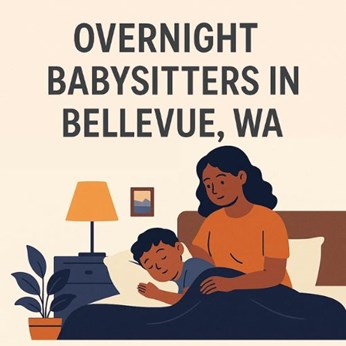
Overnight Babysitters in Bellevue, WA for Business-Travelling NRI Parents: Safety & Policies
For many NRI parents living in Bellevue, WA, frequent business trips are a reality. While traveling, one of the biggest concerns is ensuring your children are safe, cared for, and emotionally supported during overnight stays. Overnight babysitters ca

Indian Home-Style Cooks in Queens, NY: Tiffin-Style Weekly Meal Prep from Your Kitchen
Queens, NY, is home to one of the most diverse food cultures in the country, and Indian cuisine holds a special place among families looking for authentic, comforting meals. While restaurant takeout is convenient, nothing compares to the taste and nu
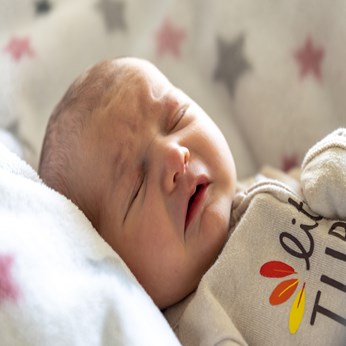
Baby Sleep Problems: What is Sleep Regression and How to Handle It
If you’re a parent, you know that baby sleep is one of the greatest mysteries of life. One day your little one is snoozing like an angel, and the next day they’re suddenly waking up every hour, fussing, or refusing to nap. Before you panic, there’s a

What is Validation Therapy? A New Approach to Dementia Care
Caring for loved ones with dementia is one of the most emotionally challenging journeys a family can face. Traditional methods often focus on correcting memory lapses or redirecting confused thoughts—but that can sometimes lead to frustration, stress
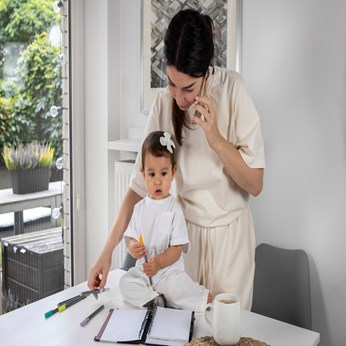
What is a Part-Time Nanny and Do You Need One
Parenting is a beautiful journey, but let’s be honest—it can also be exhausting! Between work deadlines, household chores, and family responsibilities, sometimes there just aren’t enough hours in a day. That’s where part-time nannies step in, offerin
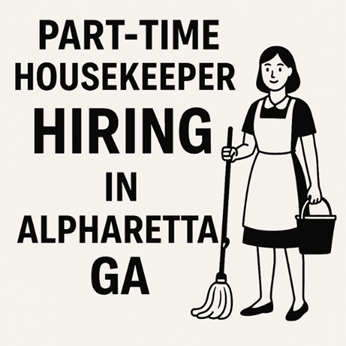
Part-Time Housekeeper Hiring in Alpharetta, GA: Weekly Schedules, Pricing, and Must-Do Tasks
Keeping a home spotless while balancing work, family, and personal commitments can be overwhelming. For families and professionals in Alpharetta, GA, hiring a part-time housekeeper is one of the most practical solutions. Whether you need help once a
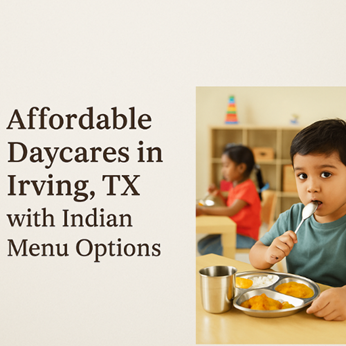
Affordable Daycares in Irving, TX with Indian Menu Options: Parent Reviews & Enrollment Tips
Finding the right daycare for your little one is never an easy decision—especially if you’re looking for one that fits your budget and offers familiar food options like an Indian-inspired menu. For parents in Irving, TX, the good news is that several

Can Babies Sleep on Their Side? Tips for Safe Baby Sleep
When it comes to newborns, every parent worries about the smallest details—how they sleep, what they wear, even which way they turn their tiny heads. One common question that pops up is: “Can babies sleep on their side?” The short answer? Not recom

8 Benefits of Hiring a House Cleaner for Your Home
Let’s be honest — keeping a home sparkling clean while juggling work, family, and daily life can feel like a full-time job in itself. That’s where professional house cleaners step in, turning the chaos into calm. If you’ve been debating whether to br

How to Care for a Gassy Baby? What’s Normal and what’s not – Expert Advice
If you’re a new parent navigating the world of burps, bubbles, and baby fussiness—welcome to the club! Gas in babies is incredibly common, especially in the first few months. But how do you know what’s normal and when it’s time to call in expert help